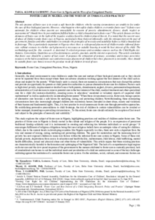The sole purpose of foster care is to create a safe haven for children, who by varying circumstances are unable to live under the care of their biological parents. However, what happens when safety eludes children, even under foster care? Is foster care automatic for children whose parents are unavailable by reasons of poverty, abandonment, divorce, death, neglect or imprisonment? Should there be preconditions fulfilled before a child is boarded out to foster care? This article focuses on these dynamics of foster care in the light of the negative realities faced by children placed therein. It is noted that the current wave of abuse of children under foster care in Nigeria, particularly those fostered informally, calls for introspection on the part of government, families and other stakeholders to consider the principles of necessity and suitability before a child is boarded out to fosterage. This is particularly important in Nigeria where there is widespread placement of children under informal foster care without recourse to whether such placement is necessary or suitable bearing in mind the best interest of the child. The methodology used for this research is doctrinal. It relied on primary and secondary sources such as the Child Rights Act, Statutes, Conventions, Guidelines as well as dictionaries, articles, journals, and the internet respectively. This article concludes that foster care should be a matter of last resort. It proposes the exhaustion of primary, secondary and tertiary preventive measures in the bid to avoid foster care and unnecessary placement of children but where placement is inevitable, there should be suitable foster care homes to meet the peculiar needs of children in need of care.

